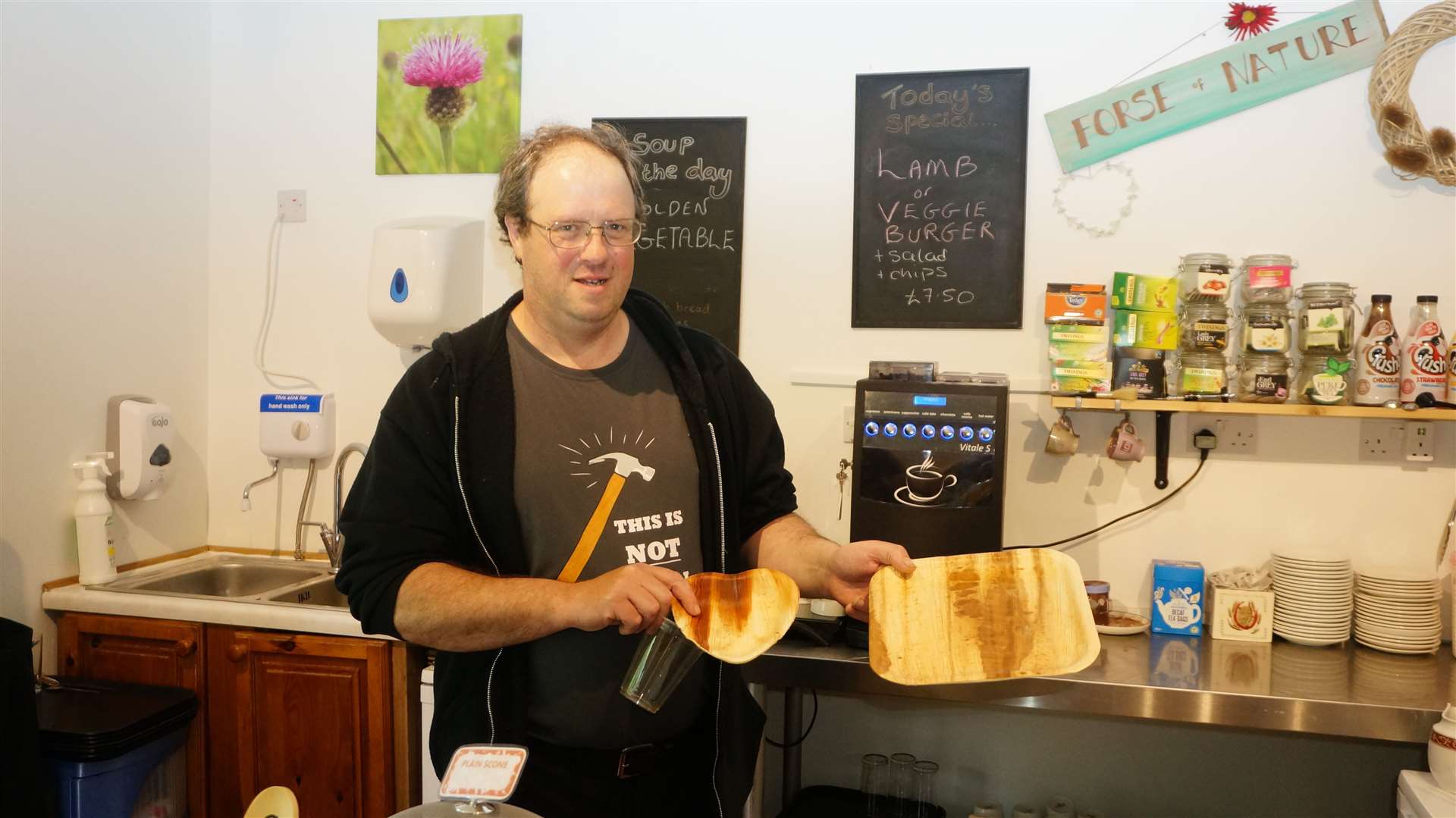Flow fuel is a natural Forse
Register for free to read more of the latest local news. It's easy and will only take a moment.
THE owners of a stately home in Caithness have been helping restore the Flow Country while getting some added warmth at the same time.
Forse of Nature café, craft shop, guest house and venue, based in the historic Forse House near Latheron has gone super sustainable with the installation of a brand new log Biomass boiler – and it’s all fuelled by an unwanted intruder on the Flow Country, forestry plantations.
Caroline Eccles, project manager of the Flows to the Future project commented: “I was delighted to hear that Forse of Nature are using timber from the Flow Country for their biomass boiler.
“Much of the timber coming out of the Flow Country at the moment is from forests that were planted on deep peat in the 1980s.
“The timber is often poor quality – trees don’t grow well on deep peat – and tends to go to Invergordon or beyond for use as biomass fuel or pulp.
“Using it locally saves a lot of lorry miles, so that’s good news for the environment.”
The Scottish government recently launched an £8m fund to help restore the country’s peatland.
The restoration work will help reduce greenhouse gas emissions by locking carbon into the environment.
It is estimated there are 1.7 million hectares of peatland in Scotland, much of which is eroding.
The ethos of the new owners, Lynn and Jason Watts, was to create the most sustainable business they could with environmental concerns at the forefront.
However, they struggled over the last two years since buying the large rambling building to find a sustainable solution to the archaic oil-fired boilers used to heat the premises.
They wanted to meet “all the right criteria” while not detrimentally affecting or detracting from the stunning Grade B listed property.
Jason Watts said: “After an in-depth search and in consultation with Resource Efficient Scotland and numerous contractors, we found the ideal solution with a large 100kw biomass boiler.”
Using locally sourced logs, which they process themselves, adds to their green credentials and although more physically demanding, gets around some of the issues around supply, cost and quality issues that some other forms of biomass fuel suffer from in Caithness.
Jason said: “The logs come from the Flow Country, where there is a major project to remove trees in order to restore the world class and environmentally important peat bogs – one of the UK’s largest carbon stores."
Costing £55,000 to install, it was cheaper than many other biomass systems of a similar size and will soon pay for itself said Jason.
“We’re absolutely delighted with the new system. It will save us over £15,000 a year, as well as helping us be as sustainable as possible.
“It’s also a lot more efficient than the old oil system, so the house feels so much warmer.
“There will quite a bit of work required in cutting, splitting and stacking the 100 tonnes of logs required each year but for us that is a small price to pay.”
"We are also very delighted to have managed to source a supply of timber from the exceptional project being carried out by the Peatland Partnership to restore the Flows”
“Our thanks go to Resource Efficient Scotland for advice and support; Glasgow based MCA renewables, who managed, sourced and installed the system for us; and to Bank of Scotland for helping us with the financing of the scheme.”
Lynn and Jason live with children Kieran and Ellie and Ellie’s partner, Andy Sheales at the great country mansion originally called Forse House.
The house was built in 1753 by Captain John Sutherland to replace his crumbling cliff-top castle, the ruins of which can still be seen close by on the coastline.
It remained as a family home until 1905, after which the house has seen a variety of uses, including a war hospital, poor house, care home and hotel, before Lynn and Jason bought it two years ago, transforming it into its current use.
The family all take an active role in running the eco-friendly guest house and café, whether it be creating crafts for the shop, vegan baking, caring for their menagerie of animals or just feeding the biomass burner – an Arikazan Ventum log gasification boiler. Simple to use, the gasification system ensures the most efficient burn possible with minimal ash, soot or smoke created.
As well as being used as a guest house and venue for weddings and retreats, it is home to a craft shop, showcasing over 50 local artists and a café that caters for all dietary requirements.
“We focus on local talent and produce and embrace the history and nature of Caithness. Our key ethos is – simple, sustainable and affordable," said Jason.
Further information on Forse of Nature can be found on its website.









